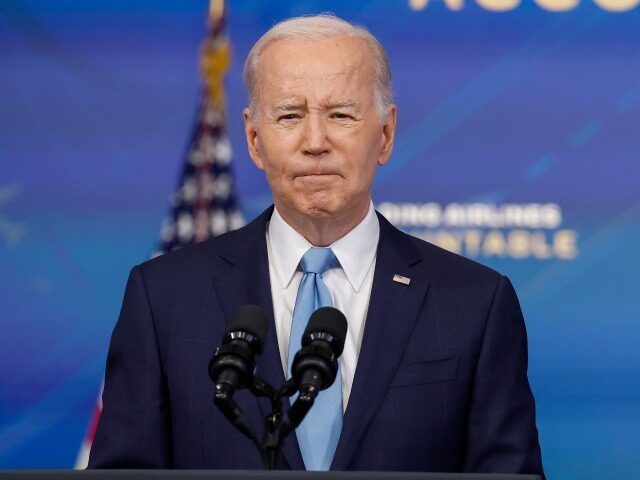Economists no longer expect inflation to come down as rapidly as they forecast earlier this year.
The median expected rate of inflation moved up to 4.2 percent in 2023, higher than the forecast of 3.9 percent the survey predicted in February, the National Association for Business Economics survey found.
That is more than twice the Fed’s target inflation rate of two percent. The Fed raised its interest rate target rapidly last year in an effort to bring down inflation.
According to Bloomberg, President Joe Biden’s 40-year-high inflation, on average, cost American households an extra $5,200 last year, or $433 per month.
Americans are paying higher rates on auto loans, credit card borrowing, business loans, and home loans. Among millennials who intended to buy a house in 2023, 92 percent said inflation impacted their goal of home ownership, a recent survey found.
The negative outcomes of inflation, fueled by massive spending during and after the pandemic, could cause Biden’s economy to slip into a recession.
[R]esearchers reviewed 16 episodes since 1950 when a central bank like the Fed raised the cost of borrowing to fight inflation, in the United States, Canada, Germany and the United Kingdom,” the Associated Press reported. “In each case, a recession resulted.”
In April, House Republicans initiated negotiations with Biden to cut many wasteful programs passed during his administration. Republicans intend to cut the wasteful spending in the same bill that would raise the debt limit to avoid a default.
Biden resisted the proposed cuts, though he remains at the negotiating table where the Republicans hold leverage.
Follow Wendell Husebø on Twitter @WendellHusebø. He is the author of Politics of Slave Morality.

COMMENTS
Please let us know if you're having issues with commenting.